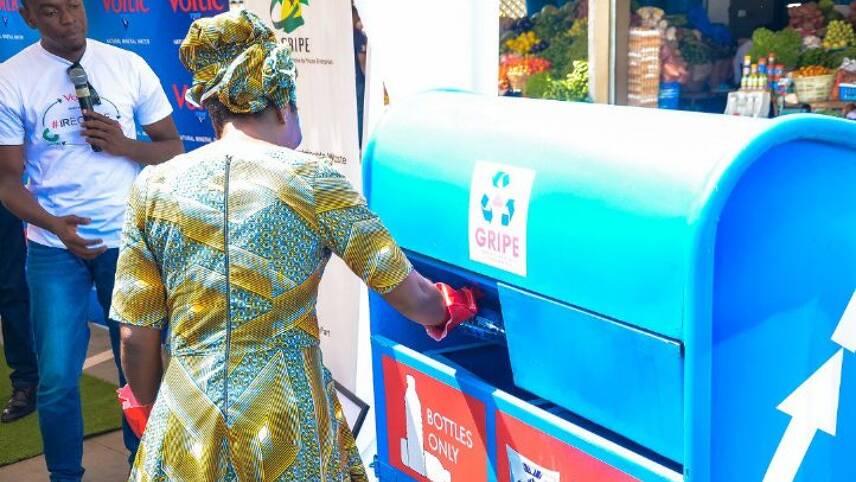Register for free and continue reading
Join our growing army of changemakers and get unlimited access to our premium content

Plastics recycling rates across Sub-Saharan Africa are currently less than 10%
Called the Africa Plastics Recycling Alliance, the scheme will see the founding companies collaboratively develop and implement programmes which will help communities across Africa turn their localised plastic pollution problems into an environmental, social and economic opportunity.
Specifically, the firms have committed to “engage proactively” in local partnerships across the region, with not only other private sector organisations but also local authorities, NGOs and non-profits. Through these partnerships, the corporates will share their best-practice advice and seek to spur the development of innovative alternatives to single-use plastic products and traditional recycling methods.
With support from NGO The Africa CEO Forum, the companies will additionally lobby for investors and policymakers to take action which will accelerate the development and financing of better waste management infrastructure and collection systems across the region, where plastics recycling rates are currently stagnating at less than 10%.
“Plastics will remain an important packaging material if we are to give African consumers the safe and affordable products they need,” a joint statement from the chief executives of Unilever, Nestle, Diageo and The Coca-Cola Company, presented at a launch event in Kigali this morning (26 March), states.
“However, we need to ensure that the packaging used ends up in the right place. Unfortunately, a lack of collection and recycling capacity in many African markets coupled with growing populations is creating a growing problem of plastics waste.
“We see an opportunity to tackle that problem in a way that creates jobs and reduces dependency on imported materials while alternatives to plastics are developed.”
The launch of the alliance builds on each of the founding firms’ existing plastics pledges for their own brands, with all four having previously committed to ensure their plastic packaging portfolios are 100% reusable, recyclable or compostable by 2025.
The companies have additionally set targets to boost the amount of recycled plastics content in their packaging, with Coca-Cola targeting 50% by 2030; Unilever 25% by 2025 and Diageo 100% by 2030.
In addition to these commitments, Unilever has pledged to reducing packaging weight by one-third and halving the waste associated with product disposal by 2020, while Diageo has similarly promised to reduce its total packaging weight by one-fifth by the same deadline.
This is also not the first time that any of the companies have joined or launched a collaborative initiative aimed at tackling plastics waste. Nestle, for example, is also involved in Project STOP, a business-led initiative aiming to prevent plastic pollution from leaking into waterways and oceans across South-East Asia, and the Global Ghost Gear Initiative, which works to tackle the 640,000 tonnes of plastic fishing gear abandoned in the world’s oceans each year.
Closing the plastic loop
In related news, building materials and insulation giant Kingspan has this week unveiled plans to include 500 million recycled plastic bottles, sourced from beaches and marine environments across Europe, in its product range by 2023.
In order to source this plastic stream, the firm has forged a three-year partnership with Spanish fashion retailer EcoAlf’s charitable arm the EcoAlf Foundation, which will collect 150 million tonnes of plastic waste from the Mediterranean every year through its network of fishermen. As much of this plastic as possible will be incorporated into new Kingspan and EcoAlf products, while the fishermen will be paid a premium for carrying out the collection.
Kingspan already uses recycled plastic in its insulation production, but this marks the first time that ocean plastics will be added to the mix. The product will be made at the company’s raw material processing plant near Barcelona.
“With the construction industry contributing 30% of all the global waste that goes into landfill it is vital that we at Kingspan find responsible ways to reduce waste at all points in the supply chain,” Kingspan’s chief executive Gene Murtagh said.
The move builds on the company’s ‘Planet Passionate’ commitments under its sustainability strategy, which also includes pledges to achieve “Net Zero Energy” status by 2020 and a 10% reduction in overall carbon emissions by 2025, against a 2017 baseline.
Sarah George


Please login or Register to leave a comment.